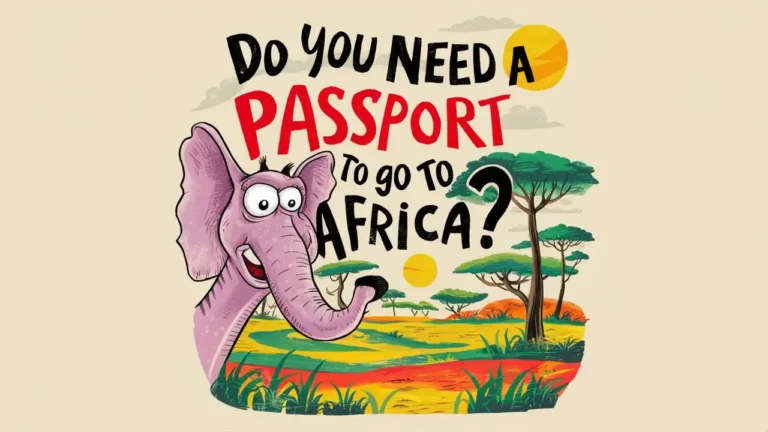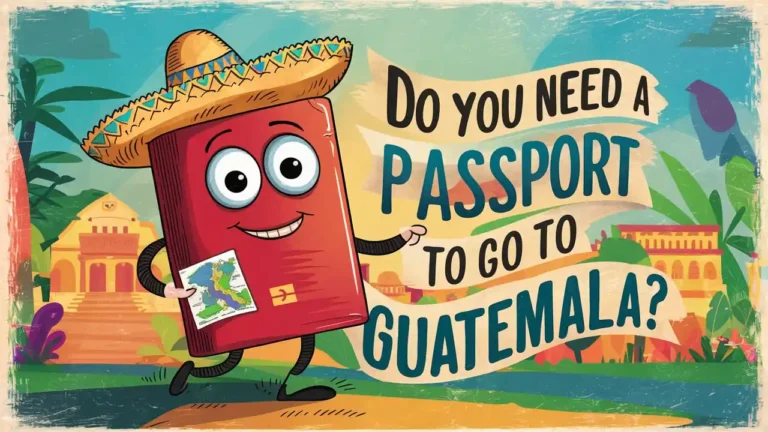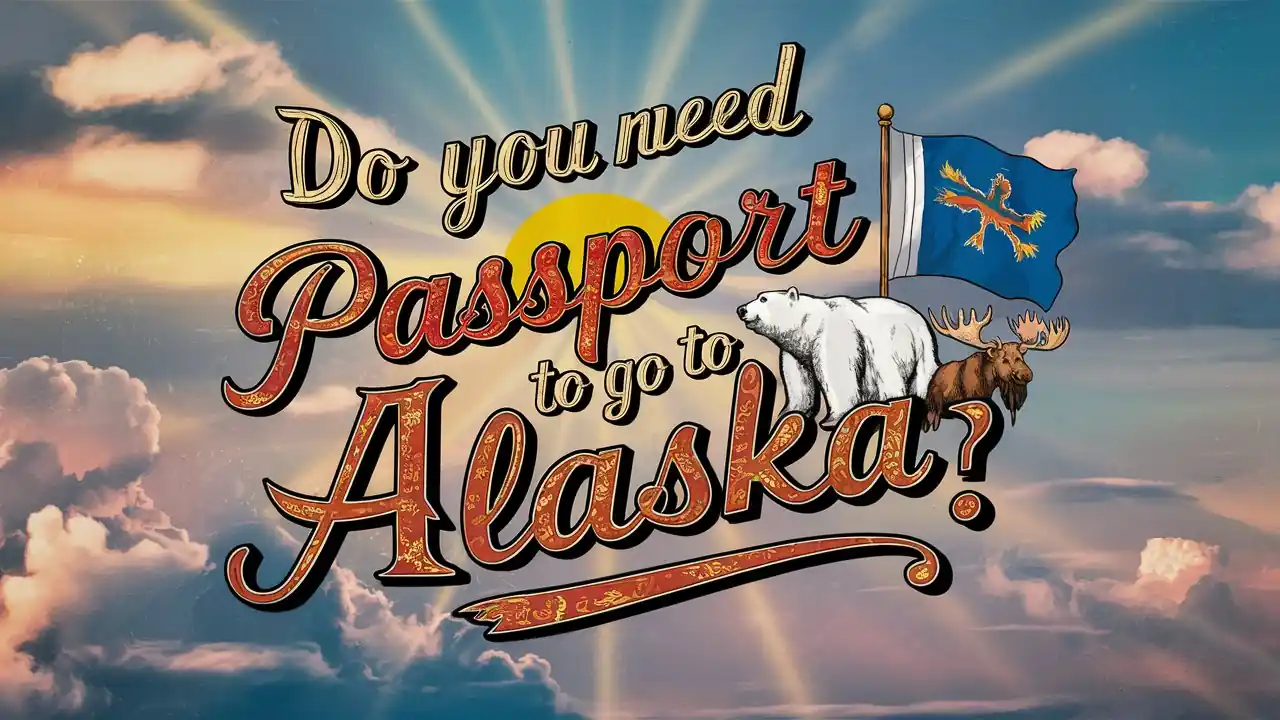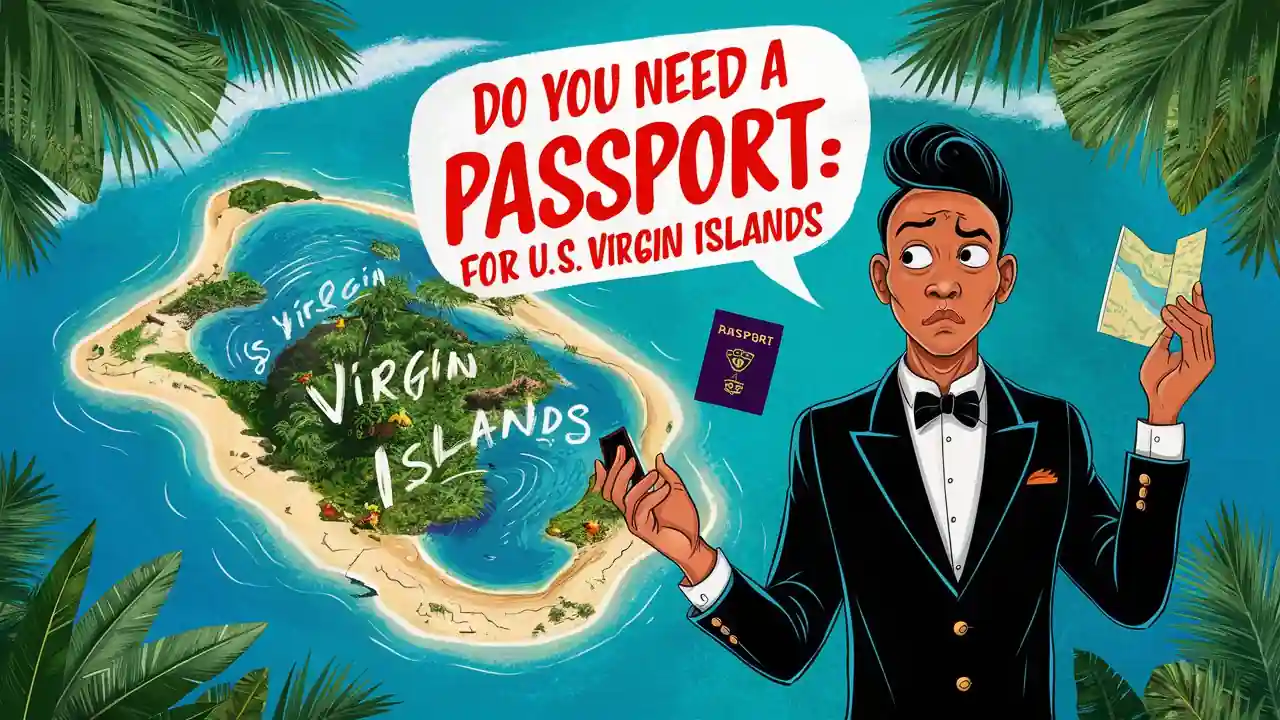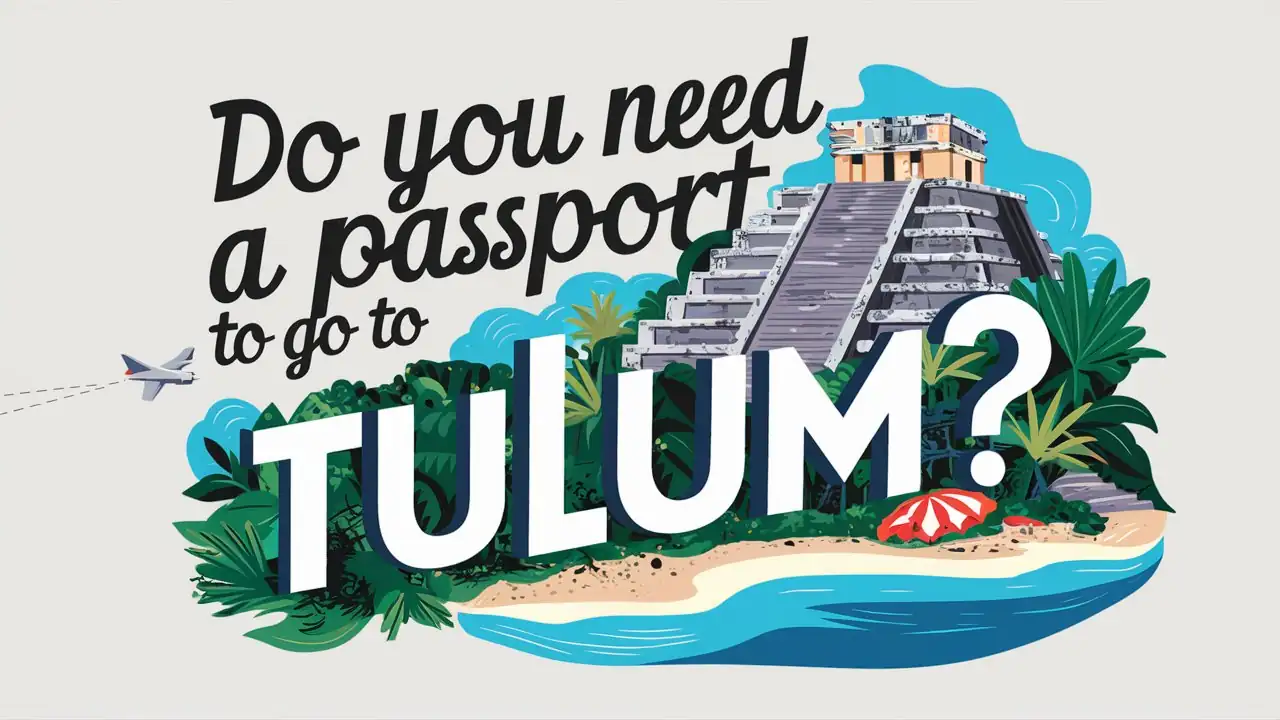Do You Need a Passport to go to Costa Rica? (2024)
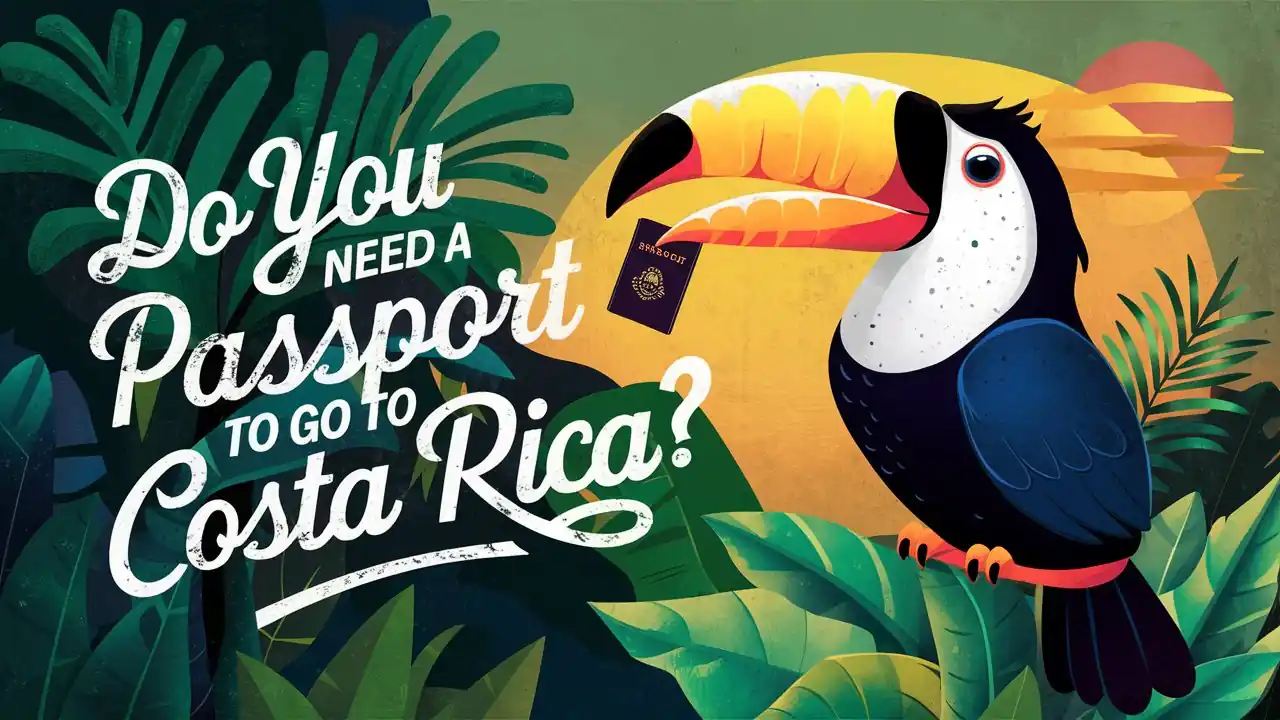
Introduction
Costa Rica, a breathtaking Central American nation known for its lush rainforests, stunning beaches, and rich biodiversity, is a dream destination for many travelers. Whether you’re seeking outdoor adventures, cultural immersion, or simply a chance to relax in paradise, one of the first questions that arises when planning your trip is: Do you need a passport to go to Costa Rica?
This seemingly simple query holds significant importance, as having the proper documentation can make or break your travel plans.
As an international destination, Costa Rica has specific entry requirements that visitors must meet. Navigating the rules and regulations regarding passports and other necessary documents can be a daunting task, especially for those unfamiliar with the process.
Understanding the requirements ahead of time ensures a smooth and hassle-free journey, allowing you to focus on the incredible experiences that await in this Central American gem. With the right information, you can confidently prepare for your Costa Rican adventure and make the most of your time in this stunning country.
Do You Need a Passport for Costa Rica?
Costa Rica, a tropical paradise renowned for its natural beauty and diverse landscapes, is a bucket-list destination for many travelers. As you plan your exciting adventure to this Central American gem, one essential question arises: Do you need a passport to visit Costa Rica? The answer depends on your citizenship and travel plans.
For U.S. Citizens
- A valid U.S. passport is required for entry into Costa Rica
- The passport must be valid for the entire duration of your stay in Costa Rica
- No minimum passport validity beyond your stay is required, but it’s recommended to have at least six months validity
- Tourists can stay for up to 90 days without a visa
For Non-U.S. Citizens
- A valid passport from your country of citizenship is required
- The passport must be valid for at least one day beyond your intended stay
- Visa requirements vary depending on your nationality; citizens of many countries can enter visa-free for up to 90 days
- Some nationalities may require a visa or a tourist card; check with the Costa Rican embassy or consulate in your country
Traveling by Land or Sea (For U.S. Citizens)
- A valid U.S. passport is required for all land and sea travel to Costa Rica
- The Western Hemisphere Travel Initiative (WHTI) requires U.S. citizens to present a passport or other approved document when entering Costa Rica by land or sea
Traveling by Land or Sea (For Non-U.S. Citizens)
- A valid passport is required for all land and sea travel to Costa Rica
- Entry requirements may vary depending on your nationality and the specific border crossing or port of entry
Children Under 16
- All children, regardless of age, must have their own valid passport to enter Costa Rica
- Minors traveling alone or with only one parent may need additional documentation, such as a notarized letter of consent from the absent parent(s)
Closed-Loop Cruises
- For closed-loop cruises that begin and end at the same U.S. port, U.S. citizens can use a government-issued photo ID and proof of citizenship (such as a birth certificate)
- However, a valid passport is strongly recommended as it may be required in case of emergency or unexpected itinerary changes
Who Does Not Need a Passport for Costa Rica?
- There are very few exceptions to the passport requirement for foreign visitors entering Costa Rica
- Some exceptions may apply to certain groups, such as diplomats or members of international organizations with valid documentation
For Locals
- Costa Rican citizens do not need a passport when traveling within their own country but may need other forms of identification
- For travel outside Costa Rica, Costa Rican citizens need a valid passport
- Costa Rica is part of the Central America-4 (CA-4) Border Control Agreement, allowing free movement between Costa Rica, El Salvador, Guatemala, and Honduras with just a national ID card
It’s important to note that entry requirements can change, and it’s advisable to check with the relevant government websites or consult with a travel professional before your trip to ensure you have the proper documentation.
Also Read:- Do You Need a Passport to Go to Maldives?
Do You Need a Visa to go to Costa Rica?
Costa Rica, a popular destination known for its stunning beaches, lush rainforests, and abundant wildlife, has a relatively straightforward visa policy for many international travelers. However, the requirements can vary depending on your nationality, the purpose of your visit, and the length of your stay. This article provides an overview of Costa Rica’s visa requirements for various types of travelers.
For U.S. Citizens:
- U.S. citizens do not need a visa to enter Costa Rica for tourism or business purposes.
- A valid passport is required, which must be valid for at least one day beyond the date of entry into Costa Rica.
- U.S. citizens can stay in Costa Rica for up to 90 days without a visa.
- A return ticket or proof of onward travel is required upon entry.
For Canadian Citizens:
- Canadian citizens also do not need a visa for short-term visits to Costa Rica.
- The entry requirements are similar to those for U.S. citizens, including a valid passport and proof of onward travel.
- Canadians can stay in Costa Rica for up to 90 days visa-free.
For European Union Citizens:
- Citizens of European Union countries do not need a visa for short stays in Costa Rica.
- They can enter the country for tourism or business purposes and stay for up to 90 days without a visa.
- A valid passport and proof of onward travel are required.
For Other Nationalities:
- Many other nationalities can also enter Costa Rica without a visa for short stays.
- However, some countries’ citizens are required to obtain a visa before travel.
- It’s essential to check with the Costa Rican embassy or consulate in your country for specific requirements.
Tourist Visas:
- For those who need a visa, Costa Rica offers tourist visas valid for up to 90 days.
- Applications typically require a valid passport, proof of sufficient funds, and a return ticket.
- Some nationalities may be eligible for a visa on arrival, but this should be confirmed in advance.
Business Visas:
- Business visitors from visa-exempt countries can typically enter on the same basis as tourists.
- For longer stays or specific business activities, a business visa may be required.
- Requirements often include an invitation letter from a Costa Rican company.
Student Visas:
- Students planning to study in Costa Rica for more than 90 days need to obtain a student visa.
- Requirements usually include acceptance to a recognized educational institution in Costa Rica.
Work Visas:
- Foreign nationals intending to work in Costa Rica must obtain a work visa.
- This process typically requires sponsorship from a Costa Rican employer and approval from the Ministry of Labor.
Retirement Visas:
- Costa Rica offers retirement visas for those who meet certain income requirements.
- Applicants must prove a monthly income of at least $1,000 from a permanent source.
Transit Visas:
- Transit visas are generally not required for travelers passing through Costa Rica’s airports.
- However, it’s advisable to check specific requirements if you have a layover in Costa Rica.
It’s important to note that visa policies can change, and requirements may vary based on current circumstances. Always check the most up-to-date information from official sources, such as the Costa Rican Embassy or Consulate in your country, before planning your trip. Additionally, even for visa-exempt travelers, entry into Costa Rica is at the discretion of immigration officials, who may request proof of sufficient funds and onward travel plans.
Why Visit Costa Rica? Let Me Tell You!
Costa Rica, a verdant paradise nestled in the heart of Central America, is a destination that should be on every traveler’s bucket list. This small yet mighty country offers a diverse array of experiences that cater to every type of adventurer, nature enthusiast, and cultural explorer. Let me tell you why you should plan your next getaway to this captivating land.
First and foremost, Costa Rica is a nature lover’s dream. With over 25% of its territory designated as protected national parks and reserves, you’ll find an incredible variety of landscapes and ecosystems to explore. From the misty cloud forests of Monteverde to the lush rainforests of Corcovado National Park, and the towering volcanic peaks of Arenal, Costa Rica’s natural wonders will leave you in awe. Whether you’re hiking through lush trails, zip-lining through the canopy, or spotting exotic wildlife like sloths, toucans, and colorful frogs, the country’s biodiversity is truly unparalleled.
But Costa Rica isn’t just about its natural beauty – it’s also a hub for adventure and adrenaline-fueled activities. Unleash your inner thrill-seeker and go whitewater rafting down raging rivers, rappel down waterfalls, or surf the iconic waves of the Pacific and Caribbean coasts. For those seeking a more relaxing pace, Costa Rica’s pristine beaches offer the perfect setting for sunbathing, swimming, and simply unwinding in paradise.
Beyond its natural attractions, Costa Rica boasts a rich cultural heritage that is deeply intertwined with its history and traditions. Explore vibrant markets, visit indigenous communities, and immerse yourself in the laid-back “Pura Vida” lifestyle that embodies the country’s spirit of simplicity and appreciation for life’s simple pleasures.
Costa Rica is also a leader in sustainable tourism, with numerous eco-friendly initiatives and a strong commitment to preserving its natural resources. By visiting, you’ll not only experience the country’s beauty but also contribute to its conservation efforts.
So, whether you’re seeking adventure, relaxation, cultural immersion, or a harmonious blend of it all, Costa Rica promises an unforgettable journey that will leave you enchanted and inspired. Don’t wait – start planning your Costa Rican adventure today!
Planning Your Costa Rica Adventure
Costa Rica, a tropical paradise, offers an abundance of adventures and experiences for travelers. To ensure a seamless and unforgettable journey, proper planning is essential. Here are some key tips to help you plan your Costa Rican adventure:
When to Visit
- The dry season, from late November to April, is generally the best time to visit, with less humidity and rainfall.
- The green season, from May to November, offers lush landscapes and fewer crowds, but with the possibility of heavy rain.
- Peak tourist seasons are during the summer and around major holidays, so plan accordingly for higher prices and larger crowds.
Where to Stay
- Popular destinations for accommodations include San José (the capital), Arenal (for volcano views), Monteverde (for cloud forests), and the beach towns of Guanacaste and the Nicoya Peninsula.
- Consider your interests and desired activities when choosing a base location.
- Options range from luxury resorts to eco-lodges, beach bungalows, and budget-friendly hostels.
Getting There and Around
- Juan Santamaría International Airport in San José is the main entry point for international travelers.
- Domestic flights, shuttle services, and rental cars are available for exploring different regions.
- For a more adventurous experience, consider booking guided tours or joining a group excursion.
Must-Do Activities
- Explore national parks like Corcovado, Manuel Antonio, and Tortuguero for hiking, wildlife spotting, and beach visits.
- Experience the thrill of zip-lining, whitewater rafting, surfing, or canyoning.
- Visit coffee plantations, Indigenous communities, and vibrant local markets for cultural immersion.
- Relax on the stunning beaches of the Pacific and Caribbean coasts.
Don’t Forget
- Ensure you have a valid passport and any necessary travel documents.
- Pack appropriate clothing, sun protection, and sturdy footwear for outdoor adventures.
- Research and book popular activities and tours in advance to secure your spots.
- Consider purchasing travel insurance for added peace of mind.
By carefully planning your Costa Rica adventure, you’ll be ready to experience the natural beauty, thrilling adventures, and rich culture that this remarkable country has to offer.
Also Read:- Do You Need a Passport to go to Fiji?
Best Things to Do in Costa Rica – Get Ready for an Adventure!
With your valid passport in hand, get ready to embark on an unforgettable adventure in the natural paradise of Costa Rica. This Central American gem offers a wealth of experiences for thrill-seekers, nature enthusiasts, and cultural explorers alike. Here are some of the absolute best things to do:
🌴 Explore National Parks and Reserves
- Corcovado National Park: Trek through pristine rainforests and spot incredible biodiversity
- Arenal Volcano National Park: Hike to the base of the iconic Arenal Volcano and relax in natural hot springs
- Manuel Antonio National Park: Combine beach time with hiking trails and wildlife viewing
🏞️ Discover Natural Wonders
- La Paz Waterfall Gardens: Marvel at stunning waterfalls and explore the hummingbird and butterfly observatories
- Monteverde Cloud Forest: Embark on thrilling zip-line tours and discover the unique cloud forest ecosystem
- Caño Negro Wildlife Refuge: Spot exotic birds, sloths, and other wildlife on a guided boat tour
🌊 Experience Water Adventures
- Surfing: Catch world-class waves on the Pacific coast, with popular spots like Tamarindo and Jaco
- Whitewater Rafting: Brave the rapids of the Pacuare River or the thrilling Reventazón River
- Snorkeling/Scuba Diving: Explore vibrant coral reefs and marine life on the Caribbean coast
🏞️ Immerse in Indigenous Culture
- Visit the Bribri and Cabecar Indigenous communities in the Talamanca Mountains
- Learn about traditional crafts, cuisine, and way of life
- Participate in cultural activities like chocolate making or basket weaving
🚴♀️ Get Your Adrenaline Pumping
- Zip-lining: Soar through the canopy on thrilling zip-line tours across the country
- Canyoning: Rappel down waterfalls and navigate through rushing river canyons
- ATV Tours: Explore off-the-beaten-path trails and rural landscapes on an ATV adventure
🏖️ Unwind on Breathtaking Beaches
- Playa Conchal: Relax on the stunning white-shell beach and crystal-clear waters
- Santa Teresa: Soak up the laid-back surfer vibe and catch stunning sunsets
- Playa Flamingo: Enjoy water sports, beachside dining, and vibrant nightlife
From thrilling outdoor adventures to cultural immersion and scenic natural wonders, Costa Rica offers a diverse array of experiences to create lasting memories. With your passport as your key, unlock the best of this Central American gem!
Currency, Language, Timezone, and Other Important Information
In addition to having a valid passport, it’s important to familiarize yourself with some other essential details before traveling to the beautiful country of Costa Rica:
Currency
Costa Rica’s official currency is the Costa Rican Colón (CRC). However, US dollars are widely accepted in many tourist areas. It’s advisable to carry some local currency for smaller purchases and in less touristy areas. ATMs are readily available in major towns and cities, and credit cards are accepted in most hotels and restaurants.
Language
The official language of Costa Rica is Spanish. However, in tourist areas and many hotels, English is widely spoken. Learning a few basic Spanish phrases can be helpful and appreciated by locals.
Timezone
Costa Rica operates on Central Standard Time (CST) year-round, which is GMT-6. The country does not observe daylight saving time.
Climate and Weather
Costa Rica has a tropical climate with two distinct seasons:
- Dry season (December to April): Generally sunny with little rainfall
- Rainy season (May to November): Characterized by afternoon showers and occasional heavy rainfall
Temperatures remain relatively constant year-round, ranging from 70°F to 81°F (21°C to 27°C) in the central valley, and 79°F to 89°F (26°C to 32°C) along the coasts.
Entry Requirements
US citizens do not need a visa to enter Costa Rica for stays up to 90 days. However, you will need:
- A valid passport with at least one day of validity beyond your planned stay
- A return or onward ticket
Additional Documents
While not always required, it’s advisable to have:
- Proof of sufficient funds for your stay
- Travel insurance (recommended but not mandatory)
- Driver’s license if you plan to rent a car
COVID-19 Considerations
As of August 2024, Costa Rica has lifted most COVID-19 restrictions. However, it’s always best to check the latest guidelines before traveling. Currently:
- No COVID-19 test or vaccination proof is required for entry
- Masks are not mandatory but may be recommended in certain settings
- Follow any local health guidelines that may be in place
Will My Phone Work in Costa Rica?
Most international phones will work in Costa Rica, especially in urban and tourist areas. However:
- Check with your provider about international roaming charges
- Consider purchasing a local SIM card for cheaper rates
- Wi-Fi is widely available in hotels, restaurants, and many public spaces
Electricity
Costa Rica uses 110 volts, 60 Hz, with Type A and Type B plugs (same as in the US). If you’re coming from a country with different voltage, bring a voltage converter.
Tipping
Tipping is not mandatory in Costa Rica, but it is appreciated for good service:
- Restaurants: A 10% service charge is usually included in the bill. Additional tipping is optional but welcome.
- Taxis: Rounding up the fare is common
- Tour guides: 10-15% of the tour cost is customary
Transportation
Options include:
- Buses: Extensive and affordable public bus system
- Taxis and ride-sharing services: Available in major cities
- Car rentals: Good for exploring, but be prepared for varying road conditions
- Domestic flights: Convenient for longer distances
Drinking Age
The legal drinking age in Costa Rica is 18 years old.
Safety
Costa Rica is generally considered safe for tourists, but take normal precautions:
- Be aware of your surroundings, especially in crowded areas
- Use official taxis or reputable ride-sharing services
- Keep valuables secure and be cautious with displaying expensive items
Local Customs
Costa Ricans (Ticos) are known for their friendly and laid-back nature. Some customs to note:
- Greetings are important; a simple “hola” goes a long way
- “Pura Vida” is a common phrase meaning “pure life” or “take it easy”
- Dress modestly, especially when visiting religious sites
Opening Hours
- Shops: Usually open from 9 am to 7 pm, Monday to Saturday
- Banks: Typically open from 9 am to 3 pm, Monday to Friday
- Restaurants: Lunch is usually served from 11 am to 2 pm, and dinner from 6 pm to 9 pm
Health and Safety
- No vaccinations are required for entry, but it’s recommended to be up-to-date on routine vaccinations
- Tap water is generally safe to drink in most areas, but bottled water is widely available
- Use insect repellent to protect against mosquito-borne diseases
- Medical facilities are good in major cities, but travel insurance is recommended
With your passport secured and these tips in mind, you’ll be fully prepared to experience the beautiful landscapes, vibrant culture and outdoor adventures awaiting you in Costa Rica. Pura vida!
Volunteering in Costa Rica – The Best Way to Truly Experience
While having a valid passport allows you to visit Costa Rica as a tourist, one of the most immersive and rewarding ways to experience this incredible country is through volunteering. Giving back through service provides opportunities to connect with locals, learn about the culture, and contribute to important causes – all while creating unforgettable memories.
Here are some of the top volunteer programs and opportunities in Costa Rica:
Sea Turtle Conservation
Multiple organizations welcome volunteers to assist with protecting endangered sea turtle species by patrolling beaches, collecting data, and helping at hatcheries in places like Tortuguero, Osa Peninsula, and Guanacaste.
Website: https://www.volunteerhq.org/destinations/costa-rica/turtle-conservation-in-san-jose/
Rainforest Conservation
Lend a hand with reforestation, trail building, wildlife monitoring and more at rainforest reserves and national parks like Corcovado, Monteverde, and the Children’s Eternal Rainforest.
Website: https://www.volunteeringsolutions.com/costa-rica/rainforest-conservation
Teaching Programs
Put your skills to use by volunteering as an English teacher or classroom assistant in rural community schools and after-school programs across Costa Rica.
Animal Rescue Centers
Get hands-on by caring for rescued wildlife like sloths, monkeys, and exotic birds at animal sanctuaries and rehabilitation facilities like Sloth Territory and Refugio Herpetologico.
Construction/Community Projects
Help build homes, community centers, schools, and other infrastructure for underserved populations through groups like Habitat for Humanity and United Work and Travel.
In addition to giving back, volunteering immerses you in the pura vida lifestyle and allows you to experience the real Costa Rica away from the resorts and tourist trails. Just be sure to have that valid passport ready before your volunteer adventure begins!
Conclusion
For U.S. citizens planning an adventure to the beautiful nation of Costa Rica, one of the most important requirements is having a valid passport book. As a foreign country outside of the United States, American travelers must present proper documentation proving their citizenship for entry and departure from Costa Rica by air. Without this essential travel document, you risk being denied boarding by your airline.
Beyond securing your passport well in advance, doing additional research helps ensure your Costa Rican travels go smoothly. Familiarizing yourself with the local currency, transportation options, cultural customs like tipping, and the best times to visit based on weather patterns allows you to maximize your vacation. With your passport in hand and a thoughtful plan in place, you’ll be ready to fully embrace the pura vida lifestyle – exploring lush rainforests, spotting wildlife, relaxing on beaches, and immersing yourself in the warm Tico culture that makes Costa Rica so special.
People Also Ask (FAQs)
Q: What type of passport do I need for Costa Rica?
A: U.S. citizens need a valid U.S. passport book to travel to Costa Rica. Passport cards are not accepted for international air travel.
Q: How long does it take to get a U.S. passport?
A: For routine service, plan on at least 6-8 weeks for processing a new U.S. passport. Expedited service takes 2-3 weeks but costs an additional fee.
Q: Do kids need a passport to go to Costa Rica?
A: Yes, U.S. children under age 16 are required to have their own valid child passport book when traveling by air to Costa Rica.
Q: How much does a U.S. passport cost?
A: For an adult passport book, it is $145 for both new passports and renewals. A child’s passport book is $115. Expedited fees are an extra $60 per application.
Q: Do I need a visa to visit Costa Rica?
A: No, U.S. citizens do not need a visa to visit Costa Rica for tourism stays of 90 days or less. Just a valid U.S. passport is required.
Q: How long is a U.S. passport valid for travel to Costa Rica?
A: Your U.S. passport should have at least 6 months remaining validity when traveling to Costa Rica to avoid any issues with airlines or customs.
Q: Can I use my passport card to go to Costa Rica?
A: No, the U.S. passport card cannot be used for international air travel to Costa Rica. You must have a valid U.S. passport book.

